Studying abroad when not ready, lacking parental supervision, children can easily get carried away, addicted to games, depressed or unable to integrate into the new environment.
At the EMA 2023 Residential Study Abroad Exhibition on November 12 in Hanoi, Mr. Brett Wertz, CEO of Fourdozen, Inc., aneducational consulting organization of American experts in Vietnam, said there was a strong increase in the demand for studying abroad after the Covid-19 pandemic.
He cited the Open Doors 2023 report showing that nearly 22,000 Vietnamese students will come to the US in the 2022-2023 school year, an increase of 5.7% over the previous school year, maintaining the 5th position in the number of international students in this country.
"That is why more and more schools are coming to Vietnam to recruit students. American boarding schools consider Vietnam a potential market in Asia," said Mr. Brett, adding that the US has about 300 boarding schools, accepting students from grades 9 to 12.
Studying abroad from high school helps children get used to the learning environment, become independent and have an easier time applying to American universities. However, Mr. Brett acknowledged that there are also many difficulties for students.
"Some parents don't want to look at reality, they just want their children to study abroad for their future, but that's their wish, not their children's," said Mr. Brett, who said he had encountered cases of students becoming depressed because they had to go to school according to their parents' arrangements even though they didn't want to.
Most students studying abroad in the US come from well-off families, with everything provided for them. When they go far away, without relatives around, and have to fend for themselves, they easily encounter psychological problems. Without preparation, children lack motivation and have difficulty integrating into the environment. Many children from big cities, when they come to the US to study at a boarding school in a boring countryside, are shocked and depressed.
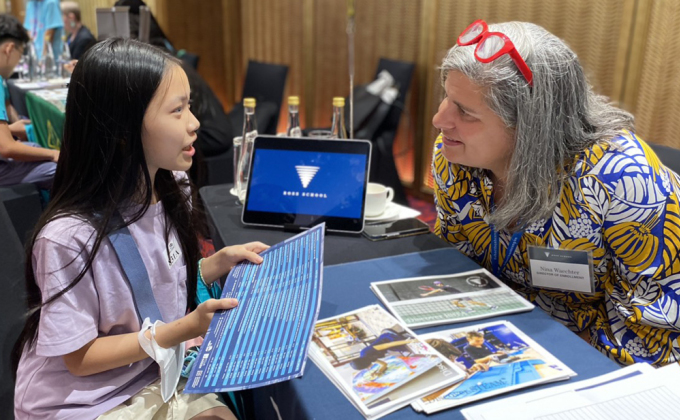
A representative of a boarding school in New York State, USA, advises Vietnamese students at the exhibition on November 12. Photo: Binh Minh
Ms. Sara Tahir, admissions representative at St. Stephen's Episcopal School, added that without parental supervision, many children indulge in gaming and stay up late. Some children suffer from culture shock, are not used to the food, are homesick, and some have difficulty with classes.
"For example, history classes in the US are very difficult for international students. Therefore, schools often have tutoring programs for students from Asian countries such as China, Vietnam, and Korea," said Sara.
Mr. John Williamson, Director of Global Development of the Enrollment Management Association (EMA), acknowledged that studying abroad at a young age sometimes creates pressure for students.
"Pressure can come from family expectations, sometimes from the students themselves because they know their parents have spent a lot of money on their education," Mr. John explained.
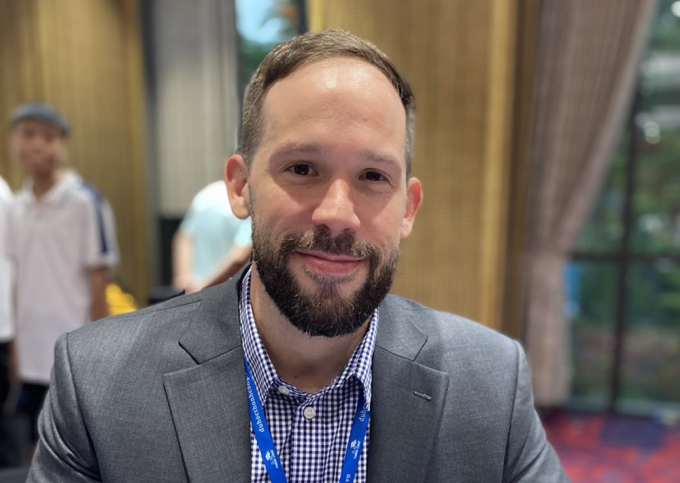
Mr. Brett Wertz, a study abroad expert with more than 10 years of experience in recruiting students in Vietnam, supports students and parents at the exhibition on November 12 in Hanoi . Photo: Binh Minh
To help students overcome psychological problems and initial obstacles, the school creates four different support classes, said Sarah Powers, admissions representative at The Governor's Academy in Massachusetts.
"Students can seek out mentors, international student representatives, people who act as foster parents in dormitories or alumni associations to share their experiences," said Sarah.
And St. Stephen's Episcopal School has counseling program, which helps students learn how to manage stress. In addition, the dormitory also has various sharing sessions on skills to overcome test anxiety or how to get help.
According to experts, when thinking about studying abroad, parents should discuss and ask their children's opinions to make sure they want to go and are ready. "It's best if parents and children share the same desire," said Mr. Brett, noting that children also need to prepare early in terms of physical strength, soft skills and English ability.
He also advises parents to choose schools that match their child's abilities, or family criteria, rather than rankings. For example, if you want your child to study Science , parents should research schools that have good programs in this field.
In addition, Mr. John believes that parents should attend study abroad events and meet directly with school representatives to learn about their interests, criteria, and the learning and living environment.
Dawn
Source link





![[Photo] General Secretary To Lam receives Chief of the Central Office of the Lao People's Revolutionary Party](https://vphoto.vietnam.vn/thumb/1200x675/vietnam/resource/IMAGE/2025/5/30/140435f4b39d4599a3d17975dfb444c5)












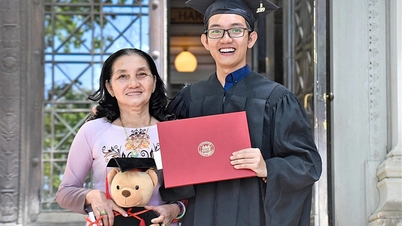


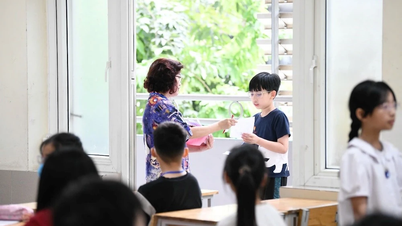



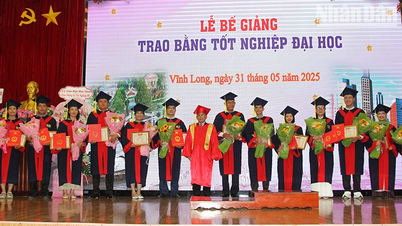











![[Photo] National Conference "100 years of Vietnamese Revolutionary Press accompanying the glorious cause of the Party and the nation"](https://vphoto.vietnam.vn/thumb/1200x675/vietnam/resource/IMAGE/2025/5/30/1cf6cd5c8a934ebfa347028dcb08358c)

















































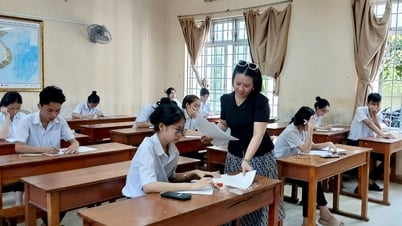






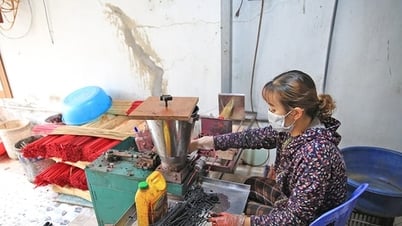






Comment (0)